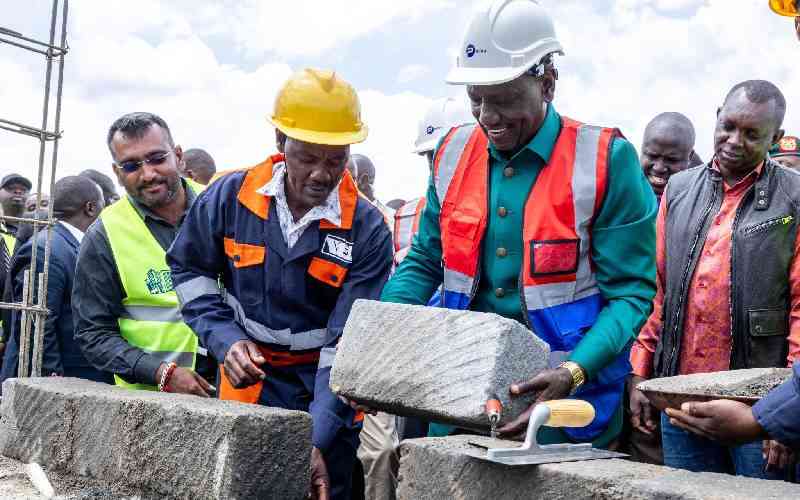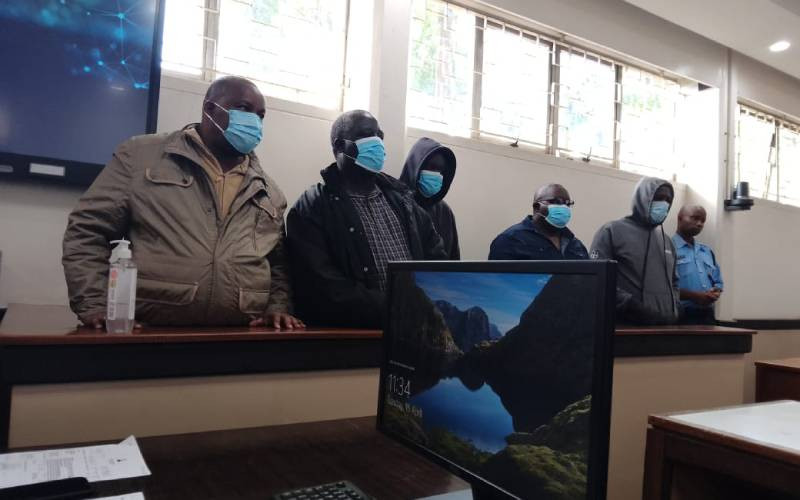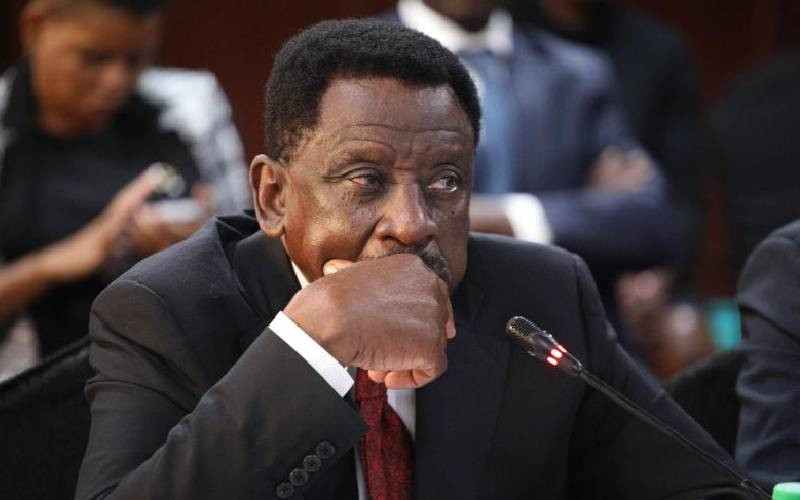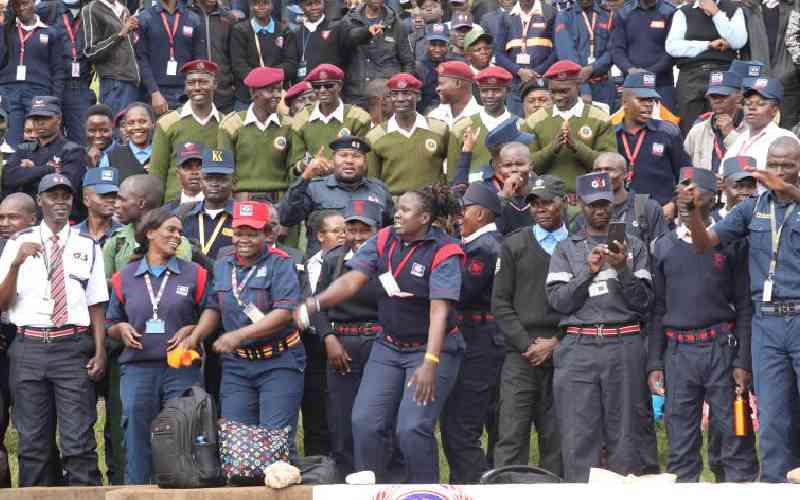By Felix Olick in Nuremberg, Germany
Government wants The Hague trials against two presidential candidates — Deputy Prime Minister Uhuru Kenyatta and Eldoret North MP William Ruto — postponed because of the likelihood of a run-off in the race to State House.
Though it is not clear if the State will formally seek the delay through an appeal to the International Criminal Court, Attorney General Githu Muigai told an international forum on The Hague-based court that ICC should be flexible and sensitive to Kenya’s plea.
“The Kenyan case is more complex because two suspects are presidential aspirants in next year’s polls,” Githu told the ICC conference in Nuremberg, Germany. Githu was making a presentation on Kenya’s efforts to complement ICC on prosecuting other perpetrators of the 2008 post-election chaos, on Saturday.
The significance of the statement by Githu is discernible from the fact that influential world figures such as ICC President Sang-Hyun Song, President of the Assembly of State Parties Tiina Intelmann and Judge Hans Peter Kaul, who was a dissenting judge at the pre-trial stage of the two Kenya cases, were among his listeners.
Speaking to the press later, Muigai who is the Government’s chief legal advisor, dismissed the position taken by ICC Prosecutor Fatou Bensouda that the trial dates could not be changed even in the interest of Uhuru and Ruto, should there be a run-off after the March 4 presidential ballot next year.
Uhuru and Ruto are on the campaign trail and their cases are expected to start on April 10. According to Independent Elections and Boundaries Commission, the run-off, if it will be necessary, would be held on April 11 when Ruto and Uhuru would have to be present in the ICC courtroom for the hearing of their cases.
After the March 4 elections, IEBC has a seven-day deadline to announce the results, which brings it to March 11. Thereafter it has 30 days to conduct the run-off.
When asked if this was the formal decision of Government to seek delay in the cases because of likelihood of run-off, Justice minister Eugene Wamalwa through an intermediary, said he was unaware of Githu’s argument. He, however, explained that the run-off might be held earlier than the start of the trials, so it would be necessary to seek an extension.
According to last week’s Ipsos Synovate opinion poll, Uhuru who will likely be on one side with Ruto will come second to Prime Minister Raila Odinga, but would likely beat him in any run-off if elections were held today. This could be what is causing discomfort in sections of Government, particularly over the implication for national security.
Githu argued that no court anywhere in the world could close its ears to the request of participants in any judicial process.
The AG was critical of the position former ICC prosecutor Luis Moreno-Ocampo took on Kenya, adding that he “was discourteous, disrespectful and unable to sustain any professional dialogue”.
He told journalists the prosecution should not close the door to any change in dates because it could also seek a postponement for several reasons including putting together last minute patches its case.
“Up to the last minute, the defence can seek a postponement for any reason, including ill-health or a million other reasons,” argued Githu.
Last Thursday, Bensouda indicated the court would stick to its judicial calendar that had earlier set the start dates of the trials of the two Kenyan cases for April 10 and 11.
Stay informed. Subscribe to our newsletter
A Legal Adviser in the Prosecutor’s office, Rod Rastan confirmed to The Standard that neither the defence teams of Ruto nor Uhuru had made any request to the Trial Chamber V judges to have the trial dates postponed.
“Such request for postponement can always be made, but so far there are no such requests and there are no indications that the dates could be postponed,” said Randal.
Githu tore into the character of Moreno-Ocampo and rooted for expansion of the jurisdiction of African Court of Justice even as he maintained the four Kenyan suspects have a right to postponement of trial dates.
He said that during his tenure, Moreno-Ocampo conducted himself unprofessionally, treated the Kenya Government with suspicion and sought to ‘promote himself’ using the Kenyan case which he described as extremely delicate.
“During the tenure of the first prosecutor I found that it was not possible to sustain a professional dialogue with the court. Sometimes I found the court patronising, sometimes downright discourteous and disrespectful of a State Party,” said the AG.
Githu said he was shocked by what appeared to be the prosecutor’s self-promotion using the Kenyan case.
It was during Moreno-Ocampo’s tenure that the government lost the bid to have the trials conducted through a local judicial mechanism through an admissibility challenge.
During the pre-trial stage, Moreno-Ocampo also managed to convince the judges that retaliatory attacks against perceived Orange supporters were planned at President Kibaki’s State House. This led to confirmation of charges against Uhuru and former Head of Civil Service Mr Francis Muthaura.
The conference marked ICC’s tenth anniversary. He said the relationship between the Government and the Court had improved after Bensouda took over.
Githu defended the Government against claims it was not cooperating fully with the ICC even as he rooted for the expansion of the jurisdiction of regional courts to try crimes against humanity. “You would imagine that when they say non-cooperation, then it’s something very central to the case. Not because they already have everything that is central to the case. That is why they went to the court in the first place,” he said
The AG said that criticism against the African Union’s efforts to extend the mandates of the African Court of Justice were misplaced since ICC was not created to be a monopoly.
He also criticised the United States for sending a delegation to Kenya urging her to cooperate with ICC, yet they were themselves not signatories to the Rome Statute.
“The position of the Security Council consisting of powerful countries is always problematic. They tell you ICC is a pillar of justice that is good for you but not us,” Githu argued.
Many African scholars and leaders at the conference including Prosecutor for International Tribunal for Rwanda Hassan Jallow and Ugandan State Minister for Justice Fredrick Ruhindi echoed his position.
African Heads of State have been pushing for amendments to expand the jurisdiction of the court to facilitate takeover of cases facing top African leaders, including the two Kenyan cases.
Earlier this year there was a resolution by the East African Legislative Assembly, sitting in Nairobi, to have the Kenyan cases transferred to the East African Court of Justice.
 The Standard Group Plc is a
multi-media organization with investments in media platforms spanning newspaper
print operations, television, radio broadcasting, digital and online services. The
Standard Group is recognized as a leading multi-media house in Kenya with a key
influence in matters of national and international interest.
The Standard Group Plc is a
multi-media organization with investments in media platforms spanning newspaper
print operations, television, radio broadcasting, digital and online services. The
Standard Group is recognized as a leading multi-media house in Kenya with a key
influence in matters of national and international interest.
 The Standard Group Plc is a
multi-media organization with investments in media platforms spanning newspaper
print operations, television, radio broadcasting, digital and online services. The
Standard Group is recognized as a leading multi-media house in Kenya with a key
influence in matters of national and international interest.
The Standard Group Plc is a
multi-media organization with investments in media platforms spanning newspaper
print operations, television, radio broadcasting, digital and online services. The
Standard Group is recognized as a leading multi-media house in Kenya with a key
influence in matters of national and international interest.








